Article published in Magazine nº11 Africa Supply Chain
Climate change is having an impact in every region of the world. High temperatures, droughts, fires, soil erosion, rising sea and coastal levels, disruption of biodiversity, declining availability of fresh water - these are all consequences that have a major impact on many aspects of our lives.
Presenting the State of the Climate in Africa 2022 report at the last African Climate Summit, the Secretary-General of the World Meteorological Organization (WMO), Jukka Petteri Taalas, pointed out that "Africa is responsible for less than 10% of global greenhouse gas emissions. Yet it is the continent least able to cope with the deleterious effects of climate change". Indeed, Africa is one of the continents most vulnerable to the effects of climate change, and its transport infrastructures are no exception.
What impact will climate change have on Africa's transport infrastructure?
From roads and railroads to seaports and airports, these infrastructures are facing a series of growing challenges due to increasingly extreme weather conditions. The World Bank's 2016 report "Enhancing the climate resilience of Africa's Infrastructure: the roads and bridges sector" already indicated that "in Africa, rising temperatures, increased rainfall and flooding will eventually take their toll on a road network already under extreme pressure".

The torrential rains of the rainy season often cause landslides and flooding, severely damaging roads and making access to certain regions difficult. The vulnerability of the road network also extends to the railroads, which are affected by storms and flooding.
Rail transport infrastructures, which are fairly well developed in countries like Nigeria, are often exposed to damage caused by them, leading to service interruptions and delays in passenger and freight transport.
Coastal seaports are no exception to the devastating effects of climate change. They face coastal erosion and flooding resulting from rising sea levels, which compromise navigation and port operations. In one of its 2019 reports, the World Bank's West African Coastal Program states that around 56% of the coastline of Benin, Côte d'Ivoire, Senegal and Togo is eroding at an average rate of 1.8 m/year.
Finally, airports in Africa are also affected by the effects of climate change, notably storms, high winds and heat waves. These affect aircraft performance and passenger safety.
As a result, climate-related disruptions lead to the deterioration of transport infrastructures, disrupting the flow of goods and people. This physical deterioration is not without its costs for the economies of African countries, in terms of interrupted supply chains and production, or limited access to certain services.
The report by the Conseil Exécutif des Transports Urbains de Dakar (CETUD) on the negative externalities of transport in the region in 2021 indicates that air pollution and greenhouse gas emissions account for 63% of the losses to the Senegalese economy - estimated at 900 billion a year - as a result of malfunctions in the transport system.
Other costs linked to the need to repair or refurbish transport infrastructures are also to be considered, to compensate for the lack of safety and reliability following the various bad weather events. According to the African Climate Policy Centre of the United Nations Economic Commission for Africa, the costs of loss and damage due to climate change in Africa are estimated at between 290 and 440 billion dollars over the period 2020-2030.
It therefore seems important that measures be taken to strengthen the resilience of African countries to extreme climatic events and/or to mitigate their impact on economic productivity, particularly in the transport sector.

What can be done to tackle the impact of climate change on transport infrastructures in Africa?
Having adequate and reliable transport infrastructures is an essential condition for Africa's economic and social development. The Agence Nationale de la Statistique et de la Démographie (ANSD) report on Senegal's economic and social situation in 2019 states that "the transport sector plays an important role in public policy" and that "the wealth created by transport services contributed 2.1% of Gross Domestic Product (GDP) in 2019".
In South Africa, the transport sector alone will contribute around 6.5% of GDP in 2023. According to a report by Mordor Intelligence, an international firm that conducts various studies and analyses of global market trends, the transport sector is a key contributor to South Africa's competitiveness on the world market.
Given the significant role played by transport infrastructure in the economies of African countries, it is imperative that decision-makers invest in systems that will enable new transport infrastructures to be adapted and existing ones modified to enhance their climate resilience. It's not just a question of rehabilitating and modernizing, but above all of taking these elements into account during the construction and maintenance phases of infrastructure as a preventive measure.
Another preventive measure consists of strengthening climate monitoring and impact prevention resources to enable effective action to be taken in advance of certain devastating climate effects. At the African Climate Summit, an early warning plan for all of Africa was launched because, according to the WMO Secretary General:
"We are determined to fill these gaps and ensure that everyone can receive life-saving early warnings. We are determined to fill these gaps and ensure that everyone can receive life-saving early warnings".
Finally, African countries can also support climate resilience measures on transport infrastructure by engaging in green growth policies to counter the repercussions of greenhouse gas emissions.

This would mean promoting the use of natural resources and thus renewable energies, and reducing waste and energy consumption, all of which can have positive effects on the climate. Africa's transport infrastructure is facing increasing challenges as a result of climate change, compromising its efficiency and long-term sustainability while generating significant costs and losses.
Adaptation and mitigation measures are needed to strengthen the resilience of these infrastructures to extreme weather events and changing climatic phenomena, counter the impacts of climate change and ensure sustainable, resilient development on the continent.
Oulématou CAMARA: Supply Chain Professional




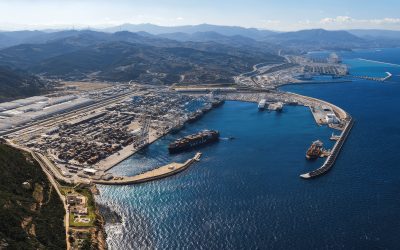
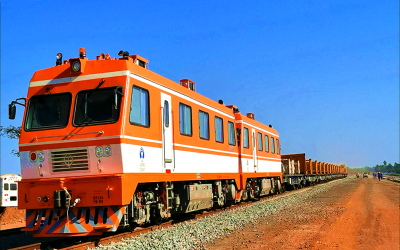
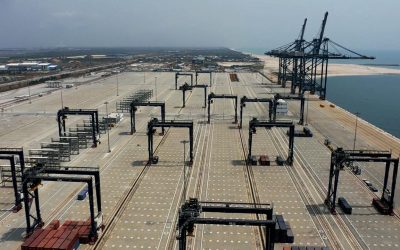

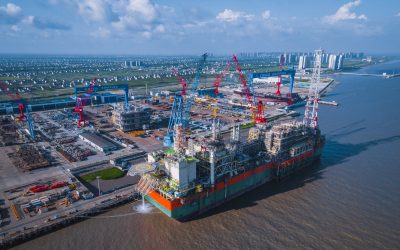
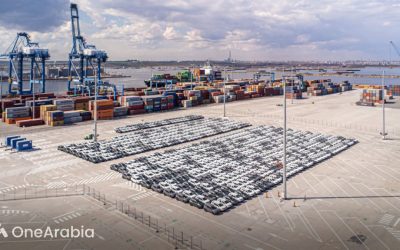


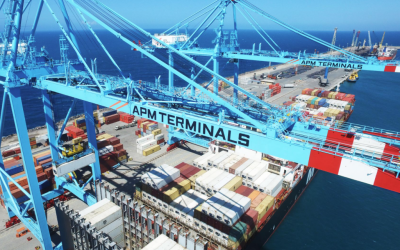






0 Comments